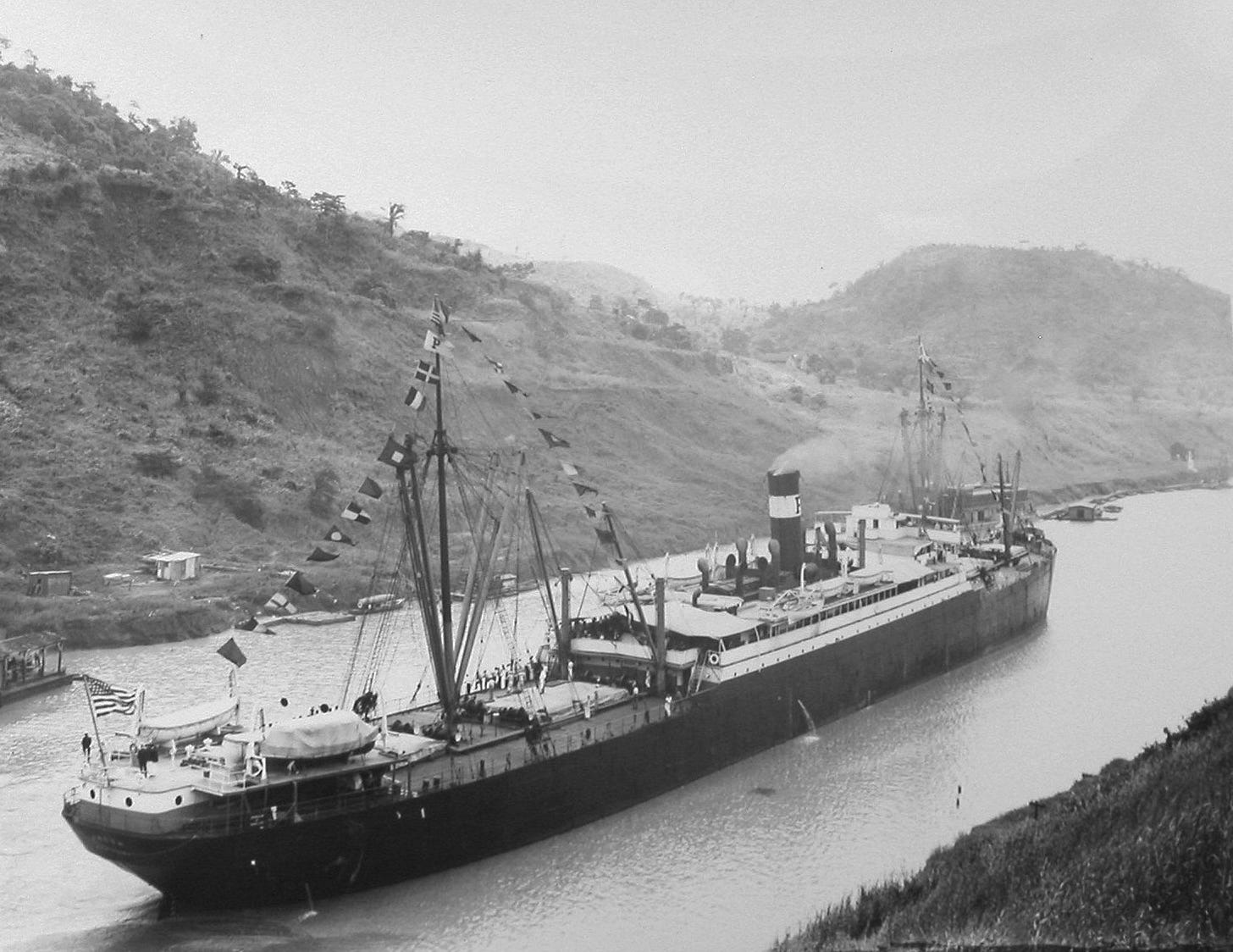TODAY IN HISTORY
August 15, 718: An Arab siege of Constantinople ends unsuccessfully after the besiegers run out of food. The Arabs had been unable to fully surround the city, allowing it to continue receiving supplies, and by this point they had been battered by disease and defeated in a major battle against the Bulgars.
August 15, 1914: The Panama Canal formally opens with the passage of a US commercial vessel, the SS Ancon. After the US took over the canal project from France in 1904 the project cost some $500 million to complete. It also cost the lives of some 5600 workers, a frighteningly high figure that is nevertheless much improved from the 22,000 workers who died on the job during the initial French effort in the 1880s. Today, under normal circumstances, some 14,000 vessels transit the canal per year, accounting for some $270 billion worth of cargo.

August 15, 1945: The Imperial Japanese government surrenders, effectively bringing World War II to a close in the Pacific Theater and overall. This is one of two dates marked as Victory Over Japan Day (“V-J Day”) in the West—the UK commemorates the surrender on August 15, while the US commemorates it on September 2, when Japanese officials signed the formal instrument of surrender on board the USS Missouri. August 15 is also commemorated as “National Liberation Day” in both Koreas, and it carries double significance in the south in that it also marks the formation of the first South Korean government on August 15, 1948.
August 15, 2021: The Afghan Taliban enters Kabul, marking the final collapse of the US-backed Afghan government and its military. The Taliban’s return to power was the final failure of the nearly 20 year US war in and occupation of Afghanistan that began in the wake of the September 11, 2001 al-Qaeda attacks in the US. A haphazard evacuation of Kabul was already underway when the Taliban arrived and would continue until the last US transport plane left Kabul Airport on August 30.
INTERNATIONAL
The United Nations plastics treaty summit collapsed completely on Friday, one day after organizers extended it in hopes of reaching a compromise accord. While most attendees aimed for an accord that would set restrictions on plastic production, leading petroleum producing nations—including the United States, the second-largest plastic producer in the world—insisted that any treaty only deal with plastic waste (China, the world’s largest plastic producer, was more open to a treaty that addressed production). Trying to curb plastic waste without doing anything to control production is the emptiest of gestures and in truth those countries are surely happier with no deal at all. In theory the intention is to keep organizing these summits until participants come to an agreement, but there’s little reason to think they’ll make any progress and there are growing calls for countries that do want a more robust treaty to develop their own accord outside the UN structure.
MIDDLE EAST
LEBANON
Hezbollah leader Naim Qassem devoted his Friday address to once again rejecting any plans the Lebanese government might devise for attempting to disarm his organization. After a meeting with visiting Iranian official Ali Larijani, Qassem accused the Lebanese government of “implementing an American-Israeli order to end the resistance,” warning that its course of action could lead “to civil war and internal strife.” Somewhat ominously he said that “we live in dignity together, and we build [Lebanon’s] sovereignty together — or Lebanon will have no life if you stand on the other side and try to confront us and eliminate us.”
Lebanese Prime Minister Nawaf Salam criticized Qassem’s remarks as “a veiled threat of civil war.” I’m not sure Qassem was threatening preemptive action against the state so much as he was trying to warn Salam and company away from attempting to disarm Hezbollah by force.


